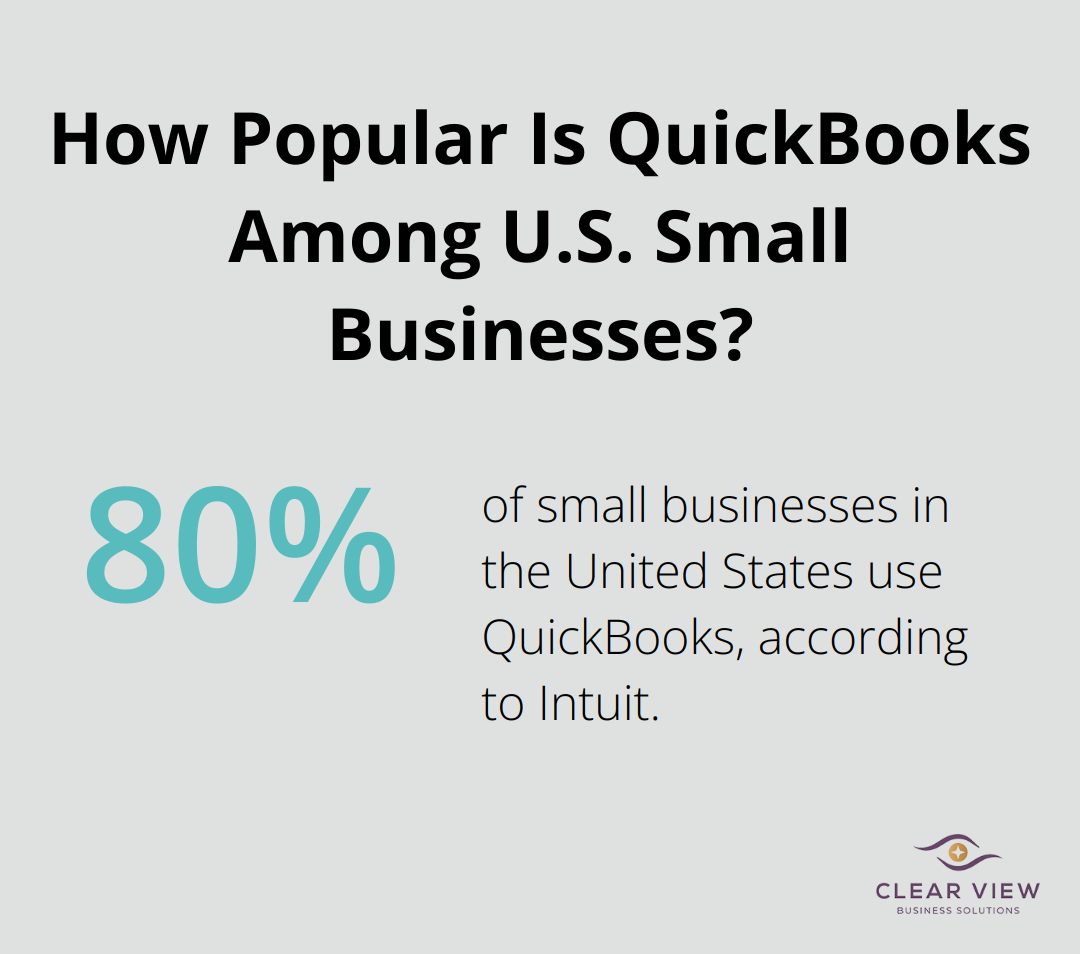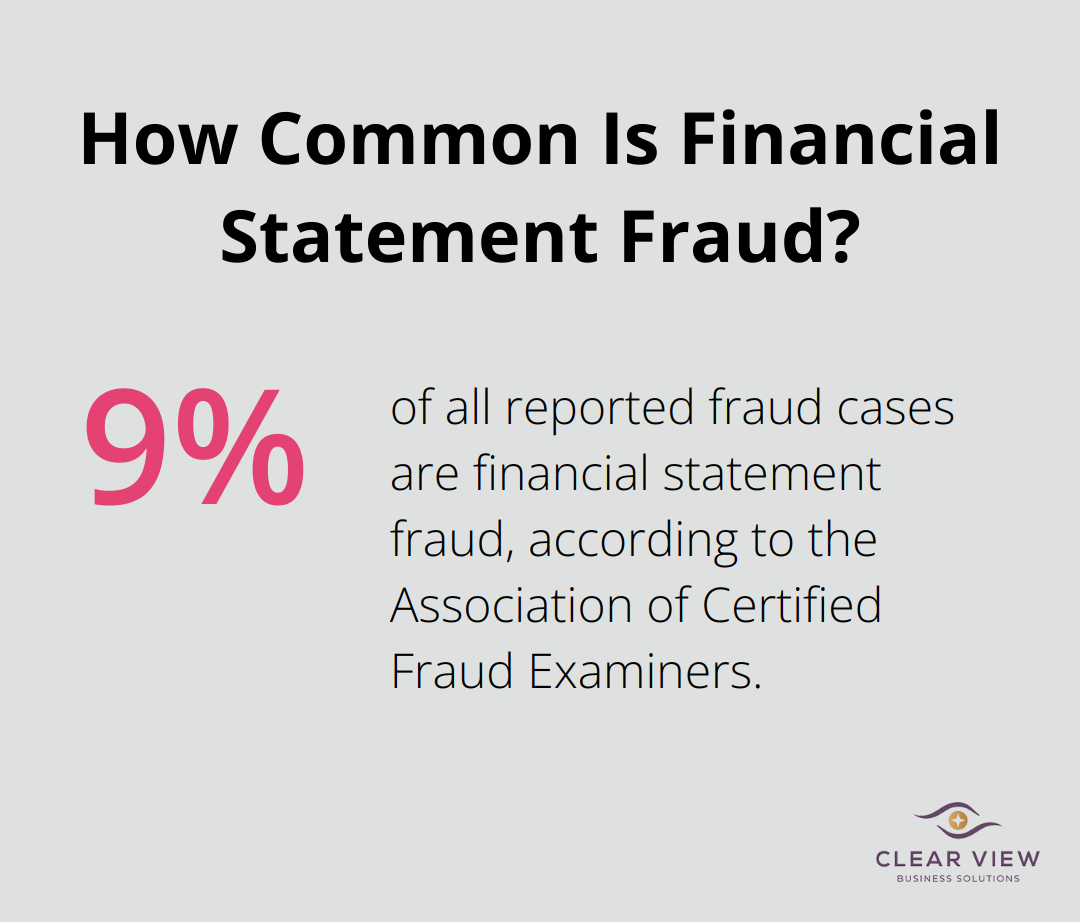

Starting a business is exciting, but managing finances can be daunting. At Clear View Business Solutions, we understand the challenges entrepreneurs face when it comes to bookkeeping.
This step-by-step guide will walk you through how to bookkeeping basics, from understanding key concepts to setting up an efficient system. Whether you’re a new business owner or looking to improve your financial management, we’ve got you covered.
Bookkeeping forms the cornerstone of financial management for any business. It involves the systematic recording, organization, and tracking of all financial transactions within a company. This process provides a clear snapshot of your business’s financial health, empowering you to make informed decisions and plan effectively for the future.
Accurate bookkeeping is essential for business success. It allows you to monitor cash flow, control expenses, and prepare for tax season. Professional bookkeepers not only manage day-to-day financial tasks but also help businesses stay compliant with tax laws, plan for growth, and make informed decisions. Proper bookkeeping helps you avoid financial mismanagement and its consequences.
To start your bookkeeping journey, familiarize yourself with these key terms:

Understanding these terms will enhance your ability to navigate financial records effectively.
While often confused, bookkeeping and accounting serve distinct purposes. Bookkeeping focuses on the day-to-day recording of financial transactions and maintenance of records. Accounting, in contrast, involves the analysis, interpretation, and reporting of financial data to stakeholders.
Consider bookkeeping as the foundation upon which accounting builds. Without precise bookkeeping, accountants cannot provide the insights necessary for strategic decision-making. A survey by Wasp Barcode Technologies reveals that 60% of small business owners feel they lack sufficient knowledge in accounting and finance. This knowledge gap highlights the importance of understanding both bookkeeping basics and accounting principles.
Now that you grasp the basics of bookkeeping, it’s time to explore how to set up an efficient bookkeeping system for your business. The next section will guide you through choosing between single-entry and double-entry bookkeeping, selecting appropriate software, and creating a chart of accounts to organize your financial information effectively.
The first step in setting up your system is to decide between single-entry and double-entry bookkeeping. Single-entry suits very small businesses with few transactions. Double-entry bookkeeping, while more complex, provides a more comprehensive view of your finances and is recommended for most businesses.
Double-entry bookkeeping records each transaction in at least two accounts, ensuring that your books always balance. This method helps catch errors and provides a clearer picture of your financial health. It also makes it easier to manage cash flow, evaluate profits and losses, and make wiser business decisions.
Choosing appropriate bookkeeping software is key for efficiency and accuracy. While spreadsheets might suffice for very small operations, dedicated accounting software offers numerous advantages. Popular options include QuickBooks, Xero, and FreshBooks.

When selecting software, consider factors such as ease of use, scalability, and integration capabilities with other business tools. QuickBooks (used by over 80% of small businesses in the United States, according to Intuit) is a popular choice. Clear View Business Solutions offers QuickBooks training to help you maximize the software’s potential for your business.
A well-structured chart of accounts forms the backbone of your bookkeeping system. This list categorizes all your financial transactions. Typical categories include assets, liabilities, income, and expenses.
Tailor your chart of accounts to your specific business needs. For example, a retail business might have inventory accounts, while a service-based business might focus more on different revenue streams. Review and update your chart of accounts regularly as your business grows and changes.
Effective record-keeping is essential for accurate bookkeeping and tax compliance. Implement a system to organize and store all financial documents (including receipts, invoices, and bank statements). The IRS recommends keeping most records for at least three years, but some documents should be retained longer.
Consider using cloud-based storage solutions for easy access and backup. This approach not only saves physical space but also allows for quick retrieval of information when needed. Cloud computing offers benefits such as data storage, backup security, cost efficiency, and easy scalability.
Setting up a comprehensive bookkeeping system might seem challenging, but it’s a critical investment in your business’s financial health. If you find the process overwhelming, seek professional help. Clear View Business Solutions specializes in setting up and maintaining efficient bookkeeping systems tailored to your specific needs.
Now that you’ve set up your bookkeeping system, let’s explore the essential tasks you’ll need to perform to keep your finances in order.
Recording your day-to-day sales, purchases and other transactions is a must. Learn where to record what, and how often to do so. This practice includes logging all sales, purchases, payments received, and expenses paid. Prompt recording prevents oversights and provides an up-to-date view of your financial position.

Use accounting software that integrates with your bank accounts and point-of-sale systems to streamline this process. This automation reduces manual entry errors and saves time.
Reconcile your bank statements with your bookkeeping records monthly to detect discrepancies and prevent fraud. Compare your recorded transactions with those on your bank statement to ensure they match. This process uncovers errors such as missed recordings, duplicate entries, or unauthorized transactions.
Address any issues promptly to maintain accurate financial records. Regular bank reconciliations can help prevent financial statement fraud, which accounts for 9% of all reported fraud cases according to the Association of Certified Fraud Examiners.
Generate and analyze financial reports to gain valuable insights into your business’s performance. Key reports include the balance sheet, income statement, and cash flow statement. These documents offer a snapshot of your financial health, profitability, and liquidity.
Review these reports monthly to track progress towards financial goals, identify trends, and make informed business decisions.
Monitor your accounts receivable and payable closely to maintain healthy cash flow. For accounts receivable, implement a system to track outstanding invoices and follow up on late payments. Consider offering incentives for early payment to improve cash flow.
Stay on top of your bills to avoid late fees and maintain good relationships with suppliers. Organize your payables by due date and take advantage of early payment discounts when possible.
Prepare for tax season throughout the year, not as a last-minute effort. Maintain organized records of all income, expenses, and deductions. This approach eases the tax filing process and helps you take advantage of all available tax benefits.
Set aside funds regularly to cover your tax obligations (this practice prevents cash flow issues when it’s time to pay).
Effective bookkeeping requires meticulous record-keeping of every dollar that flows in and out of a business. This includes sales, purchases, payments to vendors, and other financial transactions.
Mastering how to bookkeeping basics starts with understanding fundamental concepts and implementing a robust system. You must choose between single-entry and double-entry methods, select appropriate software, create a chart of accounts, and establish reliable record-keeping practices. These steps form the foundation for effective financial management and informed decision-making.

Daily transaction recording, monthly bank reconciliation, and regular financial report generation are essential tasks for maintaining organized finances. Proper management of accounts receivable and payable, along with year-round tax preparation, will help you maintain financial control and comply with regulations. These practices not only keep your finances in order but also provide valuable insights for business growth.
Bookkeeping can become complex as your business expands, and professional help may be necessary. Clear View Business Solutions offers comprehensive bookkeeping services, QuickBooks training, and personalized financial advice to support your business growth. With expert assistance, you can focus on running your business while ensuring your finances remain in capable hands.
At Clear View Business Solutions, we know you want your business to prosper without having to worry about whether you are paying more in taxes than you should or whether your business is set up correctly. The problem is it's hard to find a trusted advisor who can translate financial jargon to layman's terms and who can actually help you plan for better results.
We believe it doesn't have to be this way! No business owner should settle for working with a CPA firm that falls short of understanding what you want to achieve and how to help you get there.

Northwest Location:
7530 N. La Cholla Blvd., Tucson, AZ 85741
Central Location:
2929 N Campbell Avenue, Tucson, AZ 85719
© 2025 Clear View Business Solutions. All Rights Reserved.
At Clear View Business Solutions, we know you want your business to prosper without having to worry about whether you are paying more in taxes than you should or whether your business is set up correctly. The problem is it's hard to find a trusted advisor who can translate financial jargon to layman's terms and who can actually help you plan for better results.
We believe it doesn't have to be this way! No business owner should settle for working with a CPA firm that falls short of understanding what you want to achieve and how to help you get there. With over 20 years of experience serving hundreds of business owners like you, our team of experts combines financial expertise and proactive communication with our drive to help each client achieve results and have fun along the way.
Here's how we do it:
Discover: We start with a consultation to understand your specific goals, what's holding you back, and what success looks like for you.
Strategize & Optimize: Together, we design a customized strategy that empowers you to progress toward your goals, and we optimize our communication as partners.
Thrive: You enjoy a clear view of your business and your financial prosperity.
Schedule a consultation today, and take the first step toward being able to focus on your core business again without wondering if your numbers are right- or what they mean to your business.
In the meantime, download, "The Business Owner's Essential Guide to Tax Deductions" and make sure you aren't leaving money on the table.